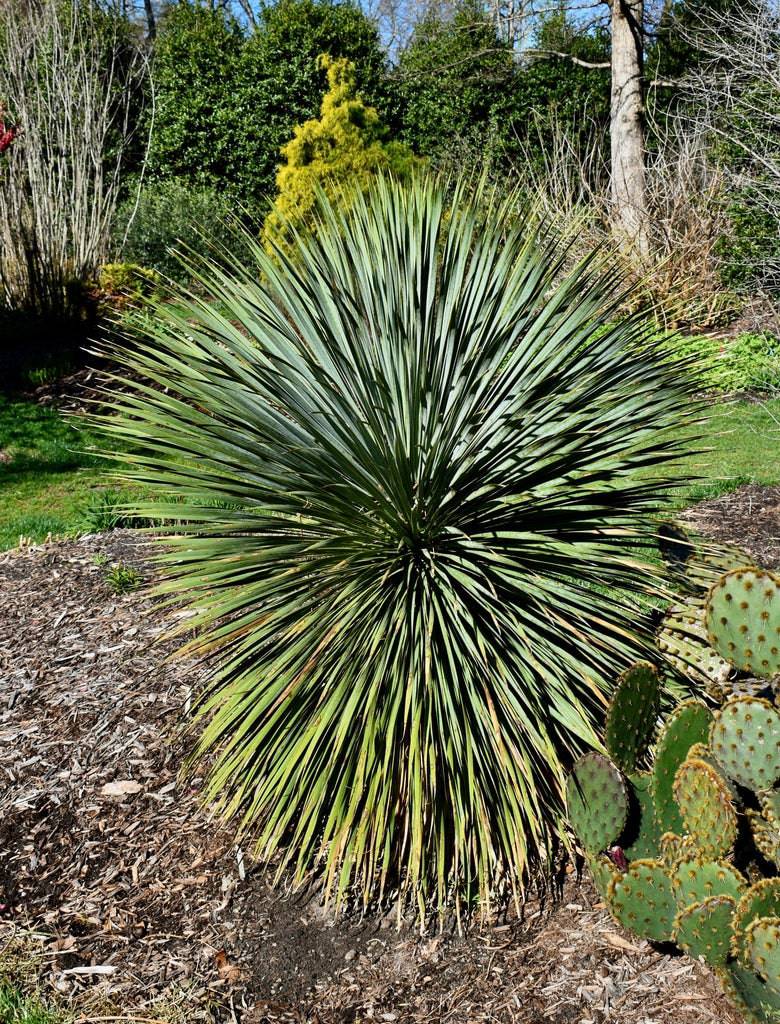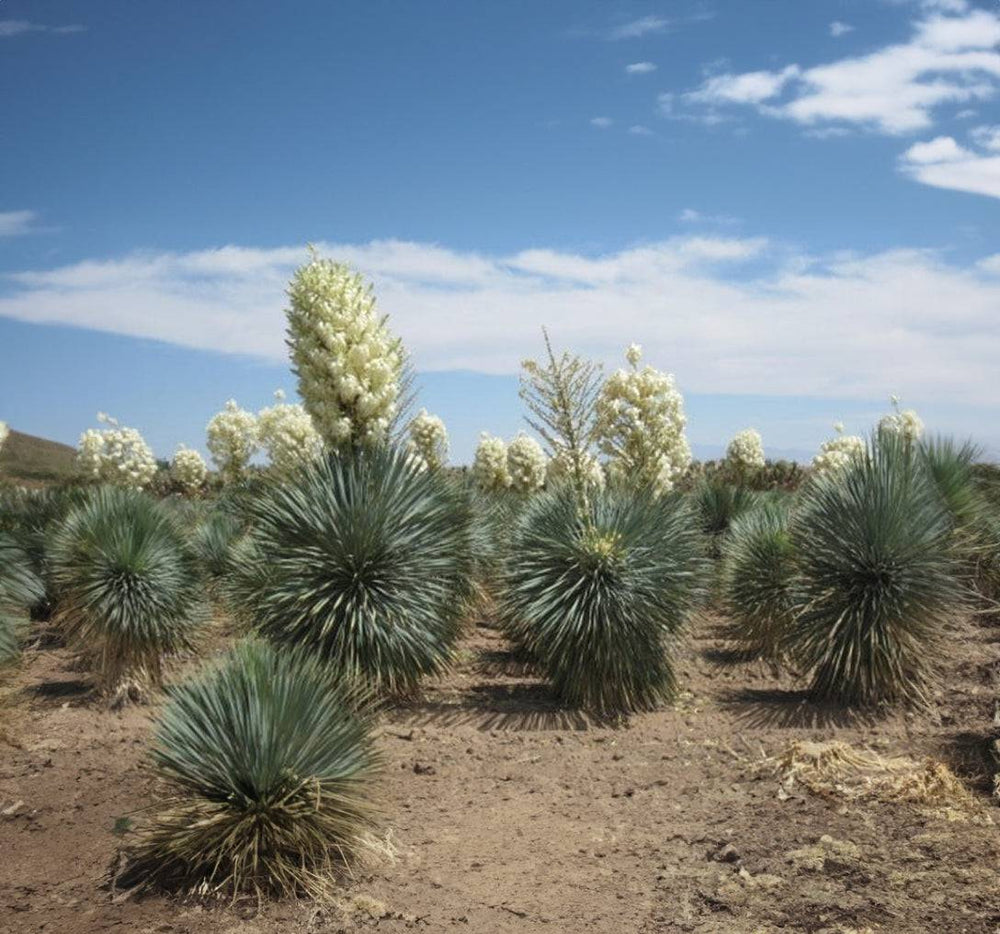Beaked Yucca
- Shipping Available
- In stock, ready to ship
- Backordered, shipping soon
Yucca rostrata
This yucca resembles a tree and is a slow-growing, ornamental evergreen with a symmetrical pom-pom-like form. It has hundreds of 2-foot long narrow leaves that are a pale blue-green, forming a rosette at the top of the trunk. The trunk is covered with soft fiber remnants of old leaves. In late spring, the plant produces beautiful yellow-orange stalks with clusters of white flowers at the top.
Unlike other yucca varieties, this plant has soft leaves, making it less dangerous. It is one of the hardiest trunk-forming yuccas, tolerating cold up to zone 5. While it prefers full sun, it can tolerate partial shade for at least three hours.
Height: 5'-15'
Spread: 4'-10'
Bloom: Spring
Light: Full Sun, Part Shade
Water: Low
Zone: 5, 6, 7, 8, 9, 10, 11, 12
Origin: Texas, Mexico
Winter Shipping: We will continue to ship throughout winter. If you prefer, we are happy to hold your order until spring; please include that request in your shipping notes.
When you order plants from our nursery, you can expect them to arrive in the best possible condition. Our team carefully packs each order using sturdy, biodegradable packaging materials.
Your plants' appearance may vary depending on the season and their current growth stage. We may cut back the leafy growth of some plants to prepare them for shipment and transplanting.
5 Gallon and Up: Any plant purchased to ship over 5 Gallons will be shipped bare root. This means we will remove the plant from its original pot, remove the soil surrounding the roots, and wrap the roots with a biodegradable plastic bag. This reduces weight and the likelihood of damage during shipping.
Once your plants arrive, it is essential to plant them as soon as possible. This will help them rebound and thrive. If you cannot plant immediately, water regularly and keep the roots off heat-conducting surfaces.
Newly transplanted plants often require more water until their roots are well established. Plan to water them 1-3 times weekly for the first few months.
















